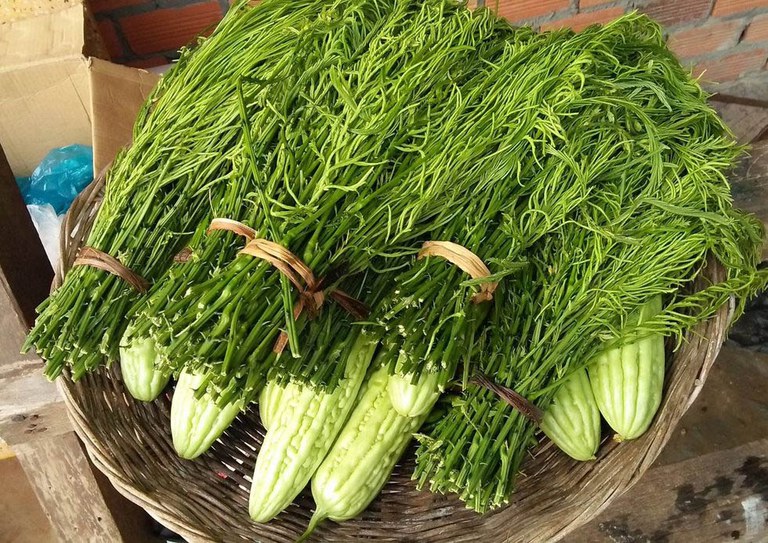Agricultural diversification empowers women in Cambodia with “wild gardens”
Problem
With approximately 1.3 billion people worldwide experiencing irregular access to nutritious or sufficient food, what can be done to help combat food shortages and malnutrition in food-insecure countries?
Findings
Rural sociologists led a multidisciplinary project—Women in Agriculture Network (WAgN): Cambodia—to address the pressing need in the country for diversified farming systems that can improve nutrition and farm profitability.
- Researchers gathered data from farm inventories of neglected and underutilized indigenous plants, wet- and dry-season market and price surveys, gender-focused farmer interviews, and first-time nutritional analysis of unique perennial vegetable species.
- Produced a list of wild food plants with nutritional and marketplace value.
Impact
The research is an example of the value that practical training and applied research can have by providing Cambodian farmers, mainly women who manage small farms, with ways to diversify their operations.
- "Wild gardens" can aid in fortifying home food security by combating hidden hunger or deficiencies of micronutrients such as vitamins and minerals.
Related Research Areas: Community Resilience, Capacity and Integrated Health Solutions
Research Credit
Team
Participating Departments
Competitive Funding
- S. Agency for International Development
- Kansas State University Sustainable Intensification Innovation Lab
Federal and State Appropriations
- State Project PEN01845, Accession #0055314
- USDA NIFA Hatch Projects PEN04677 and PEN04623, Accession #1017791 and #1013257
Emerging Discoveries
Agricultural diversification: Empowering women in Cambodia with 'wild gardens'
Office for Research and Graduate Education
Address
217 Agricultural Administration BuildingUniversity Park, PA 16802-2600
- Email agresearch@psu.edu
- Office 814-865-3136
Office for Research and Graduate Education
Address
217 Agricultural Administration BuildingUniversity Park, PA 16802-2600
- Email agresearch@psu.edu
- Office 814-865-3136



